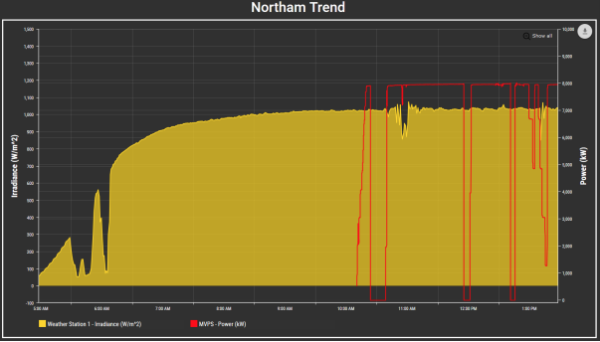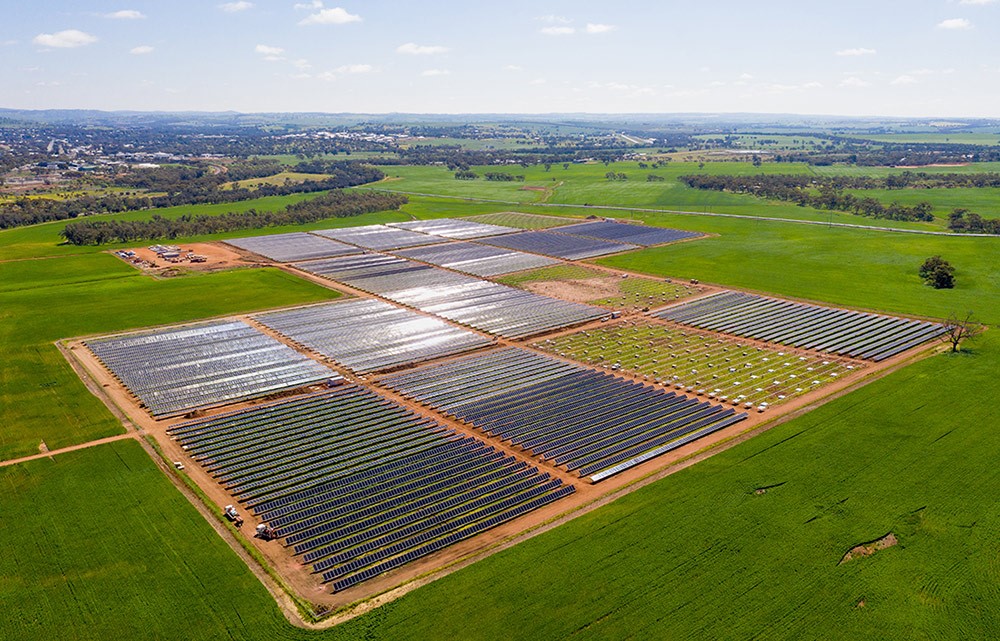As merchant projects gain traction Down Under, Western Australia has welcomed its first operational merchant utility solar project.
The 10 MW Northam Solar Farm built by ASX-listed renewable energy developer Carnegie Clean Energy has begun exporting electricity to the grid and is expected to ramp up to its full generating potential in the coming weeks.

The progress on the Northam project is good news for Carnegie, which has had a bumpy year so far. In September, the company announced the departure its long-serving managing director Michael Ottaviano, after its share stumbled down to less than one cent.
In its interim results, Carnegy revealed a $64 million loss, including a $35 million write-down of its CETO wave power technology, and announced it will renegotiate the controversial sale of its migrogrid business Energy Made Clean to Tag Pacific.
While it has announced delays for its landmark Albany wave farm due to the federal government’s potential changes to its R&D tax incentive scheme, the Northam Solar Farm was completed according to schedule.
In September, the renewables firm announced one of the co-owners in its flagship WA solar farm, Indigenous Business Australia (IBA), will acquire an additional stake from Carnegie for approximately $2.5 million.
Late last year, IBA and Perth Noongar Foundation were selected as co-investors in the WA’s first merchant utility solar project, acquiring a collective 50% ownership of the Northam Solar Project, alongside Carnegie’s 50%.
As explained earlier by former Carnegie CEO Michael Ottaviano, the Northam merchant solar farm is seen as financially viable, as it relies on three revenue streams: Large-scale Generation Certificates (LGCs), WA capacity market payments and wholesale electricity prices on the SWIS.
A number of other companies Down Under are also pushing ahead with merchant project, despite the fact that LGCs are forecast to progressively lose value and even reach zero.
For instance, UK-based renewable energy developer Eco Energy World has recently secured financing for two large-scale projects in Queensland – the 20 MW Chinchila Solar Farm and the 34 MW Brigalow Solar Farm, while China’s Risen has fully acquired Western Australia’s largest solar farm – 132 MW Merredin Solar Farm – and the 121 MW Yarranlea Solar Farm, which it plans to operate entirely on a merchant basis.
This content is protected by copyright and may not be reused. If you want to cooperate with us and would like to reuse some of our content, please contact: editors@pv-magazine.com.









By submitting this form you agree to pv magazine using your data for the purposes of publishing your comment.
Your personal data will only be disclosed or otherwise transmitted to third parties for the purposes of spam filtering or if this is necessary for technical maintenance of the website. Any other transfer to third parties will not take place unless this is justified on the basis of applicable data protection regulations or if pv magazine is legally obliged to do so.
You may revoke this consent at any time with effect for the future, in which case your personal data will be deleted immediately. Otherwise, your data will be deleted if pv magazine has processed your request or the purpose of data storage is fulfilled.
Further information on data privacy can be found in our Data Protection Policy.